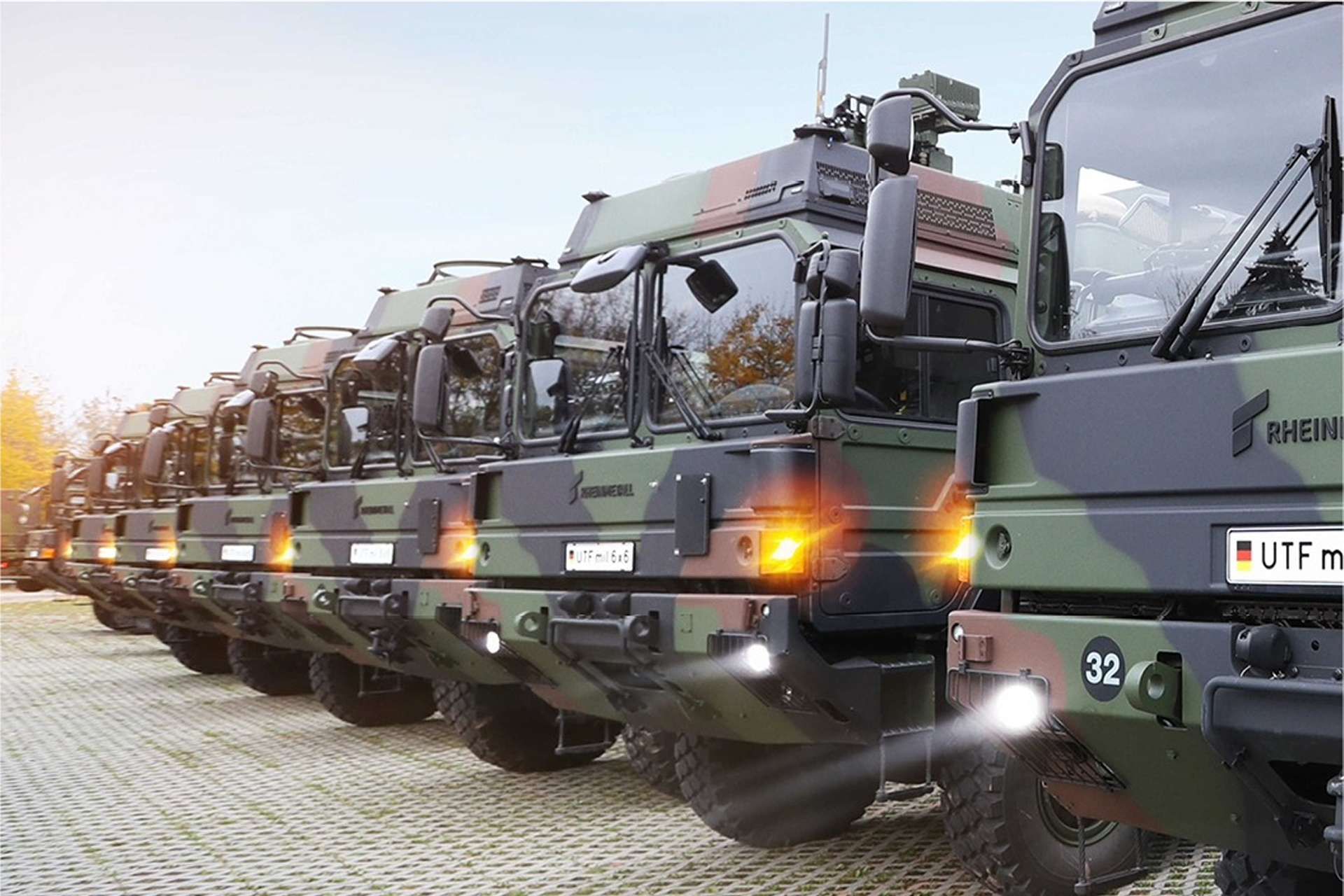Breaking News
German Army Acquires Up to 6,500 Unprotected Trucks from Rheinmetall.
The Budget Committee of the German Bundestag approved on June 26, 2024, the purchase by the Bundeswehr of up to 6,500 unprotected transport trucks, continuing the initiative begun in 2017 to modernize military logistics. Rheinmetall announced the acquisition on 1 July 2024.
Follow Army Recognition on Google News at this link

Rheinmetall announced the acquisition of 6500 trucks by the Bundeswehr. (Picture source: Rheinmetall)
Following the approval by the Budget Committee of the German Bundestag on June 26, 2024, the Bundeswehr can now finalize a framework contract for the acquisition of up to 6,500 unprotected transport vehicles (UTF) in payload classes of 3.5t, 5t, and 15t. These military off-road trucks, depending on the payload class, will feature two, three, or four driven axles. This initiative continues the effort started in 2017 to equip the troops with modern trucks for logistics and the transportation of mission containers with high operational demands.
On June 13, the Federal Office of Bundeswehr Equipment, Information Technology, and In-Service Support (BAAINBw) placed an order for 1,515 interchangeable loader systems (WLS) worth 920 million euros from Rheinmetall, scheduled for delivery this year.
The first firm order under the new framework contract will consist of a three-digit number of vehicles equipped with container mounts and pre-installed kits for command and communication systems, as well as preparations for the easy installation of the FLW 100 remote-controlled light weapon station, according to the Federal Ministry of Defence (BMVg). The Budget Committee's agenda listed the quantity as 610 vehicles, with an allocated budget of 313 million euros from the Bundeswehr’s special funds and the core budget of EP 14. Initial deliveries are scheduled for later this year.
The context allowing Germany to rearm is marked by several historical, political, and geopolitical factors. Since the end of World War II, Germany has adopted a stance of military restraint due to the responsibilities and consequences of its past. However, geopolitical changes in recent decades have led to a reassessment of this position.
The collapse of the Soviet Union and the end of the Cold War initially reduced tensions in Europe, but the security situation has evolved significantly in recent years. The annexation of Crimea by Russia in 2014 and the conflicts in Ukraine have revived security concerns on the European continent. These events highlighted the need for European countries to strengthen their defense capabilities to face potential threats.
Moreover, Germany, as one of Europe's leading economic and political powers, is increasingly called upon to play a more active role in European and global security. The expectations of its NATO partners, particularly the United States, have also pressured Berlin to increase its defense spending and modernize its armed forces.
Domestically, the political debate in Germany has evolved, with growing recognition of the need for modern and well-equipped armed forces. Recent crises, such as the COVID-19 pandemic, have also underscored the importance of national resilience, including the Bundeswehr's ability to respond quickly and effectively to various emergencies.
As a result, the German government has undertaken a series of reforms and investments to modernize its armed forces. The approval of the purchase of 6,500 unprotected transport vehicles is part of this broader effort to strengthen the logistical and operational capabilities of the Bundeswehr, ensuring that Germany can meet current and future security challenges. Based on the specified quantities and contract amounts, it can be inferred that the total volume of the framework contract will exceed three billion euros.


























